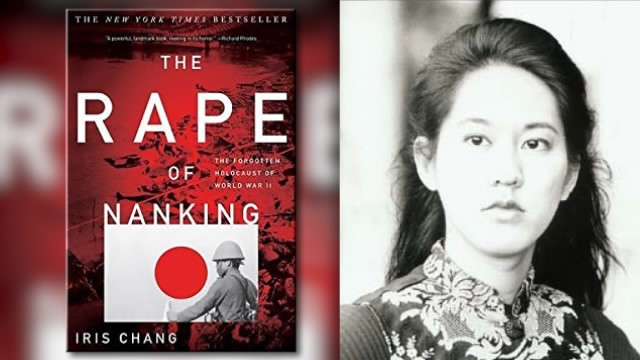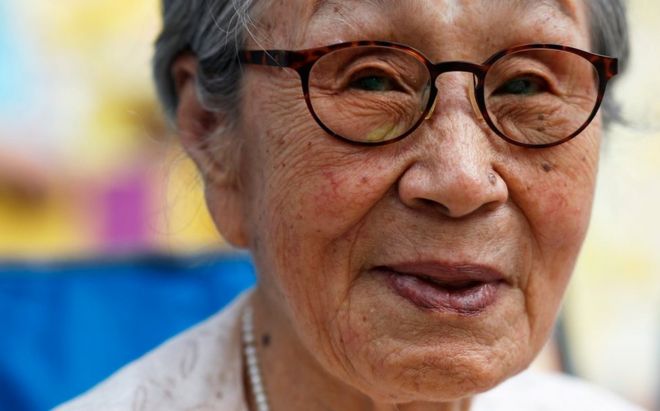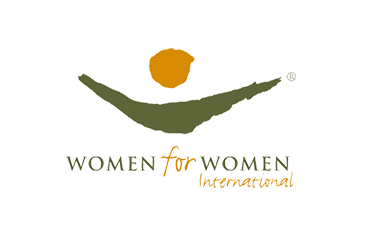by Jessica Schwarz
Silence around the topic of violence against women, be it domestic abuse or sexual assault, remains prevalent in society. With recent movements such as #MeToo women are slowly beginning to find their voices, letting the world know of the injustices committed against them. As noble and needed as these movements are, there is still such a long way to go in breaking the silence around violence against women, especially those affecting women during war and conflict.
Recently, I read Iris Chang’s ‘Rape of Nanking’ (1991), which is one of the first pieces of English literature detailing the horrors of the WWII massacre and atrocities. The Nanking massacre took place from December 1937 to January 1938 at the hands of Imperial Japan. And yet the first English book documenting it, Chang’s ‘Rape of Nanking’, only came out in 1997. For sixty years, the West remained largely ignorant of the true extent of the horrors. Even growing up in China, I was taught about what occurred in Nanking, having been shown brutal images of civilians pierced with bayonets or murdered in other gruesome manners. But all I recall is the killings, which were undoubtedly horrific, but little was said of the suffering of women, and some men, through the mass rape that occurred. The rape of upwards of 20,000 women of all ages, according to the International Military Tribunal for the Far East. This is not an insignificant number by any means. What took place in Nanking during those weeks is considered to be one of the worst war crimes in human history. But there remains much stigmatisation and silence around atrocities perpetuated against the women in Nanking.

History seems to gloss over women’s suffering during war time, focusing instead on death tolls, of civilians and soldiers alike. Little is said of the rape conducted by the Soviet troops during WWII during their westward expansion into Germany, or the sexual slavery in Bosnia-Herzegovina in the 1990s, and these are incidents that occurred in the West. Even less attention is given to non-European and non-Western countries. So little is mentioned of violence against women during war and conflict in history. Even in the present, little is said of women in current conflict areas, such as the Democratic Republic of the Congo, Columbia, Myanmar and many more. The dominance of Western narratives also contributes to the exclusion of other voices. There is an unintended silencing of women who have suffered wartime sexual violence, as well as side-lining of non-Western experiences and voices in our media. Despite women being some of the most marginalised peoples, their experiences of war and conflict are relatively underreported. Given war’s violent nature, one would have to be truly naïve to think that sexual violence does not occur. Perhaps it is easier to talk about death because the suffering ends there. They do not live on with pain. Survivors of wartime sexual violence, however, continue on with their lives. But denying the women and men who experienced sexual violence their mention in history is a form of silent erasure, in of itself. Combined with the socialised shame and stigmatisation around sexual violence, survivors are only just beginning to come forward and breaking that silence.
I watched an interview with Kim Bok-Dong, a ninety-year-old Korean woman who was previously a ‘comfort woman’ to Imperial Japanese soldiers. She, like many other young women at the time, was taken and forced into sexual slavery during WWII. And yet, the Japanese government denies their existence entirely. Madame Kim dedicated her life to obtaining an official recognition and apology from the Japanese government for the committed crimes. It was truly heart-breaking to watch and realise nothing had been done to fulfil her wishes. And I was outraged that the world had failed her so. That we cannot talk about what happened to her and many others. It feels like our silence contributes to the lack of progress made in recognising the extend of Japan’s atrocities. Neutrality and silence in this matter is complicity. We can only bring about change in ending violence against women in all contexts by being able to have discussions about it, so that effective measures can be implemented in societies all over the world to truly end gendered violence. And to do so, past violence must be acknowledged, as horrific as they were and as difficult as it may be to reconcile the past with present. To remain ignorant and silent of the past means to remain where we are. And that is why we must break the silence and indifference surrounding sexual violence.

These examples of wartime sexual violence might seem distant, in both time and geography, but the lessons to be learned are as relevant as ever. Just recently, Nadia Murad, a Yazidi activist and former ISIS captive, was awarded the Nobel Peace Prize for her efforts to end the use of sexual violence as a weapon during war. She currently fights for the prosecution of ISIS for the Yazidi genocide. But no justice has come off it yet. Her fight continues until the world can rally behind her and bring about the change needed. And until we can acknowledge the wrongdoings of the past and those that spill into the present, we will be unable to address them accordingly and prevent them from ever happening again. History can and does repeat itself. And sexual violence cannot continue. And while combatting violence of the present day is instrumental for a better future, I believe it is important to fight for those who were wronged in the past, and that is why I hope to contribute to breaking the silence around sexual violence against women in history.
There is only so much that survivors should have to do by themselves. We as members of society need to do more to support them. It is necessary for us to acknowledge and bear witness to the suffering and injustices so that they will not happen again. There is power in defying what is expected of us. In defying the silence. Slowly but surely we must break the silence. On all fronts. For women who suffered wartime sexual violence. For women in the present. For men. For members of the LGBTQ+ community and other minority groups. We cannot continue to fail them by remaining indifferent and silent.
It is time to break the silence around violence against women in all forms, and sexual violence especially. Even if it is one hashtag or blog post at a time.
